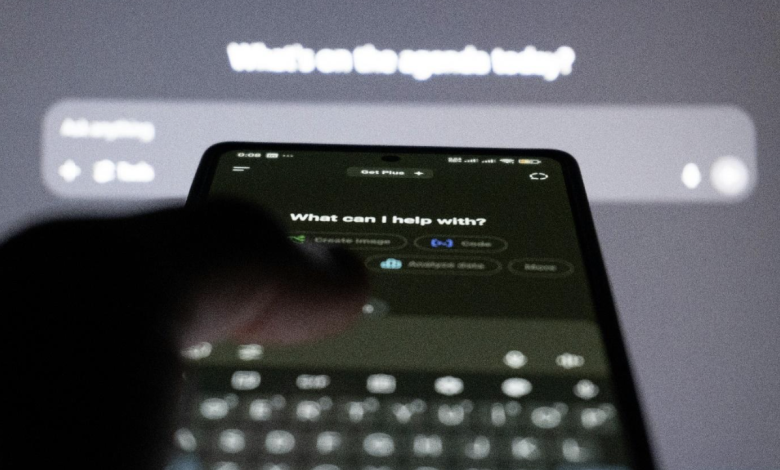
The online gambling sphere is enjoying a level of unprecedented market success, but the question that looms over it is whether it is sustainable. Whether we’re talking about price management, innovation standards, or high-fidelity competition, there are quite a few factors that are consistent sources of uncertainty.
However, one of the definitive vectors of progress and ensuing innovation in this sphere is the usage of artificial intelligence. Its role in process optimization is something that we see in all the spheres of digitalized operations. From governmental usage, retail operators, to big tech companies, artificial intelligence is definitely a development that has market relevance.
In the context of sports betting, one of the two main cores of online gambling has benefited from a broad set of legalization and liberalization attempts that have mostly become successful. It’s an entire initiative that has strong roots in the overall digitalization of gambling, which has gone through several successful phases.
Implementing AI for its particular needs is the newest and hottest methodology of improving this product. Its primary objectives revolve around improving efficiency, which requires factors like price sharpness, quick reaction time, and all in the interest of better profitability. The market is competitive enough to stimulate as much upside as possible.
This article will be a primer on how AI slots into this entire process. From its relationship with the data that adjusts odds, to the bets whose worth and payout require efficient calculations, there is an entire sliding scale of optimization that AI can contribute to.
AI revolution or over-reliance on a bubble?
The question that is on many minds that are monitoring the tech sector is whether there is an AI bubble. The principle that we’re mostly looking for is how much natural investment goes into it, if there are enough factors that play into meeting its needs for expansion (data centers and steady, sustainable revenue), and if the consumer public is ready for its mass usage.
There has been data to suggest that ChatGPT is already in the top preferences of people who are trying to gather information efficiently. Google’s Gemini, X’s Grok, and other popular models are implementations that are primary vectors for how the AI market is continuing to ingratiate itself. We’re not even going to touch on the generative AI capabilities that are starting to look eerily realistic, as proven by the launch of Sora 2.
To answer the question, there is an AI revolution, but its sustainability is in question. We are in a position in which we, the consumers, can have legitimate questions about its societal effects, and whether a bubble burst would expose us to the need to recalibrate from quite a few points of view.
As such, rejoicing about its positive usage in mediums like sports betting should come with the caveat of possible over-reliance, possible fallouts, and the need to keep an eye on the big picture.
The usage has its earnest upside; will it continue?
Despite its holistic potential usage, implementing AI efficiently is a skill issue that is about planning what the model does for you, if it operates thanks to a proper training regimen, and if it can justify its costs. In sports betting, the potential is both true and earnest if the basic conditions of AI implementation are met.
Artificial intelligence is good when it can make efficient calculations. For this to work, it needs to know what each piece of data that goes into a sports event can represent in the bigger picture. What each card, injury, goal, corner, or field tilt momentum swing represents when it comes to winning (or drawing probability).
It also needs to have a mechanism for collecting data automatically from sources that track these particularities. After all, AI sharpness must be efficient enough not to be caught lacking in the face of gameday issues, money dumping, and other actions that an AI model may not consider naturally irrational.
AI usage is at its best only when human operators are overseeing its procedures, especially in the case of difficult decision-making or cases when data biases become apparent.
Examining feed latency and the need to optimize it
Let’s delve a little deeper into what feed latency can mean when it comes to AI-powered or assisted situations. Since sportsbooks consider themselves to be in a position of strength due to built-in mechanisms like the vigorish and the overall traffic that they see with popular games.
The model of price management has the following structure:
- The actual sports events are happening in a physical venue that enjoys some form of coverage. Broadcasters that are in charge of cable television of live-streaming are transmitting the actual goings-on on the field/pitch/court. While current technology has proven that the quickness of these broadcasts has greatly improved, there is data that shows that there is still latency when it comes to actually moving live imagery into connected devices.
- Once things happen on the field, there are data trackers that feed every new happenstance into a data-gathering model. Websites and services that track that data are those that feed it into the AI model. Nowadays, AI usage can operate with the implementation of recognizing on-field action and correlating it with a data entry that they add to their formula of calculation. Otherwise, they just transmit data into that match’s pool right away.
- The oddsmaker that relies on the match data tends to have issues with the latency of a broadcast, which places it at a disadvantage. If that oddsmaking model relies on AI, it’s in a better position because it can take that data, use the built-in calculation process, and generate modified odds.
Accurate odds, proper bets
Let’s expand on the point of efficient odds optimization because it boils down to more than just quick reaction times. It’s a double whammy because it both protects the bookmaker from exploitative bets on outdated odds, but it also gives users a fair price in real time. You may think that slotting in a bet when the prices do not reflect reality is a fair game and a legitimate opportunity, but there is a strong caveat.
First things first: the bookmaker’s position. A bookie will always want its odds to reflect its probability model. If you don’t know, odds generated at any given time represent a combination of probabilities calculated for each outcome (home win, away win, draw). However, when calculating the implied probabilities of each set of odds, you quickly realize that they exceed 100%. The extra is, in fact, the house edge, adding a bit of juice to each set of odds in order to collect a built-in tax for hosting the bookmaking service.
AI usage ensures quick calculations that have a built-in range of the vigorish (juice), allowing it not to be at a disadvantage. If the odds stay outdated to a smaller degree, betting on that outcome would just mean a loss of the house’s edge, which eliminates that sense of the bottom line provided by the juice.
Additionally, it removes the risk of arbitrage. Data provided by the betbrain odds comparison model showcases that discrepancies in various sets of odds are the result of mistakes and slow reactions from bookmakers. This means that savvy bettors use the possibility of betting on these odds in order to generate a win that covers betting on the other outcome(s), exploiting this difference to a degree that puts the bookmaker in a tough market position.
Less dissatisfaction from the user?
When there is a pending time in which the bettor wants to place a wager on a set of live odds, the situation may be a bit problematic because of the failproof mechanism that some online sportsbooks have. They freeze the betting process to a degree that stops and voids any bets placed on a set of odds that are under review and within the modification process.
The usage of AI to reduce the effects of such latency is what eliminates such situations. Once there is a data input that comes in the exact moment when a bettor would identify a betting opportunity due to watching the broadcast, the AI model is fast enough to react before the bettor places their wager.
This means that, rather than having locked betting or voided stakes because of an ongoing modification process, the AI model simply gives players proper wagers that reflect the probabilities based on that specific sportsbook’s probability model.
As such, it eliminates the dissatisfaction of voided bets and other pending issues that can negatively impact the betting experience of a consumer. AI provides the reaction quickness that eliminates the risk of improper/inefficient odds optimization.
Conclusion
There aren’t any worthwhile conclusive words to speak other than the fact that AI usage in sports betting ensures a better playing field for both the bookmaker and the user. However, any concerns about the theoretical AI bubble’s impact on the industry, not to mention to disparity of AI implementation capabilities between big and small sportsbook operators, are valid.
Regardless of the way that you view this discussion and situation, our main piece of advice is to remember the fact that we are talking about gambling. As such, don’t forget to play responsibly!




